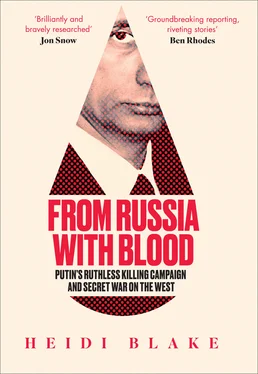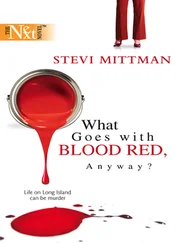The mayor had shot to power on the back of stinging attacks on the authoritarianism of the old Communist regime, but he had quickly come to curse the new democratic mechanisms that replaced the Soviet system. There were four hundred freshly elected representatives in city hall following St. Petersburg’s first free elections, and Sobchak found himself hog-tied as the rookie legislators pulled all the levers of their new powers at once. They went to war over even the most basic decisions and reveled in their new right to challenge Sobchak’s every move in court.
Putin had seen his boss buffeted by the turbulent city council, and now he felt the sting of parliamentary scrutiny himself. Democracy, he learned, just gets in the way. But capitalism was an entirely different story. The market made anything possible. By the time he became deputy mayor, Putin had become a neat fusion of old Russia and new: hybridizing the authoritarian tendencies of his Soviet security training with an appreciation for the market and a kleptocrat’s taste for a criminal scheme. And as his influence in St. Petersburg expanded, his ambitions grew. So when Boris Berezovsky came knocking, Putin saw the path to real power opening up before him.
*Much of the evidence Litvinenko gathered about the Tambovskaya Bratva was later disclosed to the Litvinenko Inquiry and published at litvinenkoinquiry.org. Both Putin and Ivanov have always denied any connection to organized crime.
iii
Davos, Switzerland, 1996
The windows of the opulent Swiss salon gave a warm glow onto the snowy streets of the ski resort where the global elite were gathering for the world’s most exclusive summit. Inside, Boris Berezovsky was in full rhetorical flight, hunched forward as he made his impassioned case to a small but powerful audience. It was January of 1996, and on the sidelines of the World Economic Forum, the future of Russia was once again being decided by a cabal of megarich men.
Boris Yeltsin was preparing to stand for reelection at the end of his first term, and he was already careening drunkenly toward a humiliating defeat. The national misery caused by his economic shock therapy program, coupled with his increasingly shambolic public appearances, had made the president a figure of contempt among ordinary Russians, and his approval ratings were bumping along below 10 percent. To Berezovsky’s deepening alarm, the Communists had swept the board in the parliamentary elections the previous month and established a commanding lead in the early presidential polls. Berezovsky knew what would happen if the Reds retook the Kremlin: the oligarchs would be destroyed. The former state assets they had accumulated would be confiscated, their wealth would be clawed back, and spells in Siberian prison would be all they had to look forward to. The full horror hit home when the Communist Party leader arrived at Davos to be greeted by a succession of world leaders and the international media as the future president of Russia. Berezovsky was not about to stand idly by and let Russia backslide. He simply had too much at stake.
The godfather had gathered his fellow oligarchs on the sidelines of the Davos summit to propose a plan to save the motherland. The men around the table must ensure Yeltsin’s reelection at all costs—and when the battle was won, they would make the president pay. Berezovsky’s persuasive powers did not fail him, and the group formed a secret pact to pump tens of millions into a war chest devoted to defeating the Communist threat. Altogether, the “big seven” oligarchs controlled around 50 percent of Russia’s wealth and all its mass-media outlets: they would use the money, as well as their TV stations and newspapers, to wage an all-out information war on Yeltsin’s behalf. Russian electoral rules forbade campaign spending of more than $3 million per candidate—but when had the robber barons ever let a little matter like the law stand in their way?
Back in Moscow, Berezovsky poured the Davos fighting fund into a slick Western-style election campaign, complete with rock concerts, celebrity endorsements, and glossy advertising, and dedicated the airwaves of Channel One and the column inches of Kommersant to coverage vaunting Yeltsin and painting the Communist Party as blood-crazed Stalinists. The plan worked. Yeltsin climbed steadily back from oblivion in the polls, and when the election came around that summer, he won. But the backing of the oligarchs did not come cheap.
In exchange for the money they had put into Yeltsin’s reelection, the big seven acquired controlling stakes in yet more of the prized assets still under state control. As soon as Yeltsin was safely back in the Kremlin, the assets were put up for sale in rigged auctions, a move that cemented the hatred of the Russian people toward the band of kleptocrats now all but ruling the country. In 1997, the year after what became known as the Davos Pact and the windfall that followed, Forbes magazine named Berezovsky the world’s ninth-richest entrepreneur, with a personal fortune of $3 billion. And the rewards he reaped for shoring up Yeltsin’s second term were not purely financial.
The godfather wielded ever more influence after the election. Yeltsin gifted him a prized job as deputy director of the Kremlin’s national security council and made him Russia’s point man in the breakaway republic of Chechnya. Berezovsky reveled in his new roles, which afforded him all the limelight he could wish for and plentiful chances for further self-enrichment.
But Yeltsin’s health was failing fast, and his increasingly drink-sodden public appearances were making Russia a laughingstock on the world stage. Berezovsky and his fellow oligarchs knew it was time to find a successor. What they needed was a man they could manipulate—a gray, malleable functionary who would stay loyal and run Russia like a puppet chief executive while they sat above as a controlling board pulling the strings. Berezovsky thought he knew the perfect man for the job—and he had just arrived in Moscow.
Mayor Sobchak had not enjoyed the same luck as Yeltsin did in the 1996 St. Petersburg elections. Without as many rich backers to tilt the ballot in his favor, the mayor had been toppled by a former ally—and that had been just the push Putin needed to leave his hometown behind and set out for the capital. In doing so, he had declined a role in the new mayoral administration, a move that impressed his virtues on Berezovsky still further. Loyalty to one’s patron: that was the quality Yeltsin most fervently desired in his successor. This would make Putin an easy sell.
What the president feared most, after nearly a decade of looting, was prosecution. He knew he and his close circle had become hated figures among the population they had cheated, so he needed to find a candidate who could be trusted to forgo the easy populist points to be gained by going after the old regime.
Putin began spending time with Berezovsky—visiting him at the Logovaz Club, skiing with him in Switzerland, staying at his villa in Spain. He soon secured a junior government job with the oligarch’s help, quickly winning favor through his well-honed appearance of quiet conscientiousness. And then Berezovsky helped smooth his path to a position of real power: in 1997, Putin became the chief of Yeltsin’s presidential staff. He had made it inside the Kremlin.
Moscow—1998
Berezovsky was in the hospital recuperating from a snowmobile accident when his phone began ringing off the hook. The caller was the eager young state security official who had quizzed him about the car bomb four years before. Alexander Litvinenko had since been transferred to a highly secretive department of the FSB—Russia’s newly revamped security agency—and he insisted he needed a private audience with Berezovsky. There was no time to lose: it was urgent.
Читать дальше












